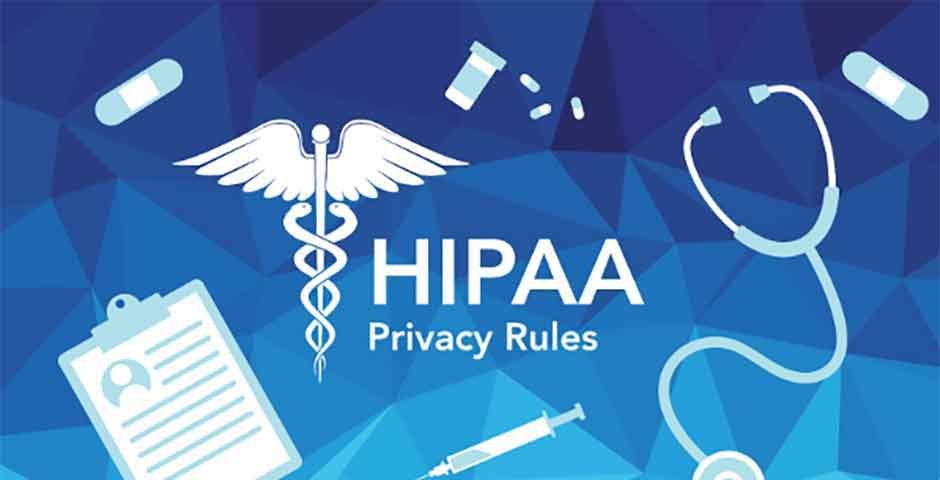A HIPAA-compliant app intended for processing and storing medical data. With the evolution of mobile gadgets, HIPAA compliant app development is becoming increasingly important. It also requires all individuals who handle data to follow strict rules regarding handling and storage.
The platform must use strong measures, such as encrypting data and setting passwords. They must also have access control mechanisms that allow only authorized users to view.
In addition, the project must have audit and control mechanisms that monitor any changes to identify any unauthorized attempts to access it. The project meets standards and provides a safe and secure environment for processing and storing.
The Role
This is legislation that was passed in 1996 in the U.S. that regulates the transmission, use, and protection of patient information. It includes several sections that set the rules. One of the main roles is to protect. Requires that protect data and take steps to prevent unauthorized access. Also provides for fines and penalties for violations of the rules and requirements set forth in the law.
Also regulates the transfer of information. The law requires us to follow standards and procedures when transferring data. This is especially important these days because privacy concerns have come to the forefront in many areas.
The importance in 2023 remains high, as maintaining privacy remains critical. As information technology advances, it becomes even more important to protect people from unauthorized access to their treatment history, use, and distribution of this information.
The law also regulates access to data for research, which may become even more important in light of the search for new drugs and technologies.
Principles
The principles include the following:
- Protecting privacy: the law requires that patients and the product must comply with appropriate standards to prevent unauthorized access.
- Protecting the integrity: mechanisms to control the integrity to ensure the accuracy, completeness, and validity.
- Protecting the availability: access control mechanisms that allow only authorized users to view.
- Securing: strong measures, such as encryption and setting passwords.
- Audit and controls: audit and control mechanisms to monitor any changes and identify any unauthorized attempts to access it.
- Applications that process and store must comply with standards. This could be EMR, projects for patients to view their data, a billing processing system, etc. There may also be projects that are not directly related to medicine but are useful, such as for insurance companies, employers, etc.
How it can affect the timing and cost of creation
Compliance can affect timing and pricing because they are quite stringent and may require additional costs to develop, test and implement a system.
Services that must comply with the law must use strong standards, such as encryption of data and passwords. Measures may require additional development and testing costs.
Second, the system must use access and audit controls that allow only authorized users to view and edit medical data. Implementing such controls may require additional development effort and expense.
Third, the law requires systems that process to undergo regular and compliance reviews. This may also require additional costs to prepare for the review and the review process itself.
In addition, timing and pricing may depend on how complex it is and how many functions need to be implemented. This can affect the complexity and cost of building it. Compliance can affect timing and pricing.
HIPAA compliant creation process
Creation can be quite complex and requires many steps that must be followed. Below are the basic steps you need to follow to create a HIPAA compliant app:
- Determine the scope. First, you need to determine what types will be processed. For example, the service may process electronic records, patient information, and prescriptions.
- Define criteria. The next step is to understand the criterias and how they will be applied. You need to understand what measures need to be in place to protect sensitive information.
- Develop standards. This may include encryption, password protection, and access control mechanisms.
- Design the architecture. Your application should be designed to ensure privacy, including access control and audit mechanisms.
- Create the code. Everything should be done with functionality standards in mind.
- Testing. Test your product to make sure it meets criteria. This can include testing, functionality testing, and compliance testing.
- Obtain certification. Obtain certification. This may be necessary to get it up and running and make sure it is compatible.
- Deployment. Deploy the result of the work done to the server.
The relevance of creating a HIPAA compliant app
Further improvement remains a hot topic in the medical industry as regulators continue to tighten regulations and penalize companies for violating regulations to protect sensitive information. Failure to meet the standards can lead to serious consequences, including high-profile reputational losses, significant fines, and even litigation.
Also, as technology and digitization, the amount that is generated and processed continues to grow. This means more information needs to be protected.
Creating an HIPAA compliant app is also important for improving the quality of care and patient satisfaction. When patients are in safe hands and protected appropriately.
Thus, creating an HIPAA compliant app is important for the industry and continues to be relevant in light of stricter regulations and the increasing amount that is generated and processed.

Why create a HIPAA compliant app: conclusion
Creating a HIPAA compliant app can be an important step for any facility that wants to securely share and follow. Many patients choose facilities and projects that provide privacy. This could prove to be a worthwhile investment that will help maintain patient trust and improve their bottom line in the long run.
For now, this niche remains vacant. Therefore, if you have the desire to occupy an area in which today’s competition is minimal, you should consider creating such a project. And do not forget that to implement such an ambitious idea, you need professional developers who have relevant experience and a high level of qualification. Otherwise, you run the risk of encountering difficulties even before release.






